updated 6 November 2016
 |
<PREVIOUS PAGE ~ index ~ NEXT PAGE> |
It's amazing what one can find about businesses whose names have vanished from today's consciousness. In the late 19th century, the Hartford One Price Clothing Company was a thriving business.
 |
| Clothiers' and Haberdashers' Weekly v.7no.17 p.42 10 Ap 1896 via Google |
 |
| 30 Mr 1893 Hartford Weekly Times via Google |
 |
| Inland Printer v.20 Oct 1897-March 1898 p.503 via Google |
 |
| from Google Newspapers Hartford Weekly Times, Thursday 17 April 1890 p.12 |
 |
| From the "Boston & the East" column, American Hatter v.40 p.139 July 1911 via Google |
Connecticut Historical Society, information on this 1911 photo is as follows:
...Signs on the left read: "Hartford One Price / 114-116 / Clothing Co." "Van the Hatter" and "Hardware." ... Electric street lights and utility poles line the street. Inscribed on back: "Asylum St. / Dec. 17, 1911."On Google Street view, the building that housed the Hartford One-Price Clothing Company still stands. In 2015, it was being well-maintained by Udolf Properties and tenants such as McKinnon's:
 |
| July 2015 and those plants are thirsty! |
 |
| Google Street View, July 2015 for more views of this landmark building, see Photographers Street View |
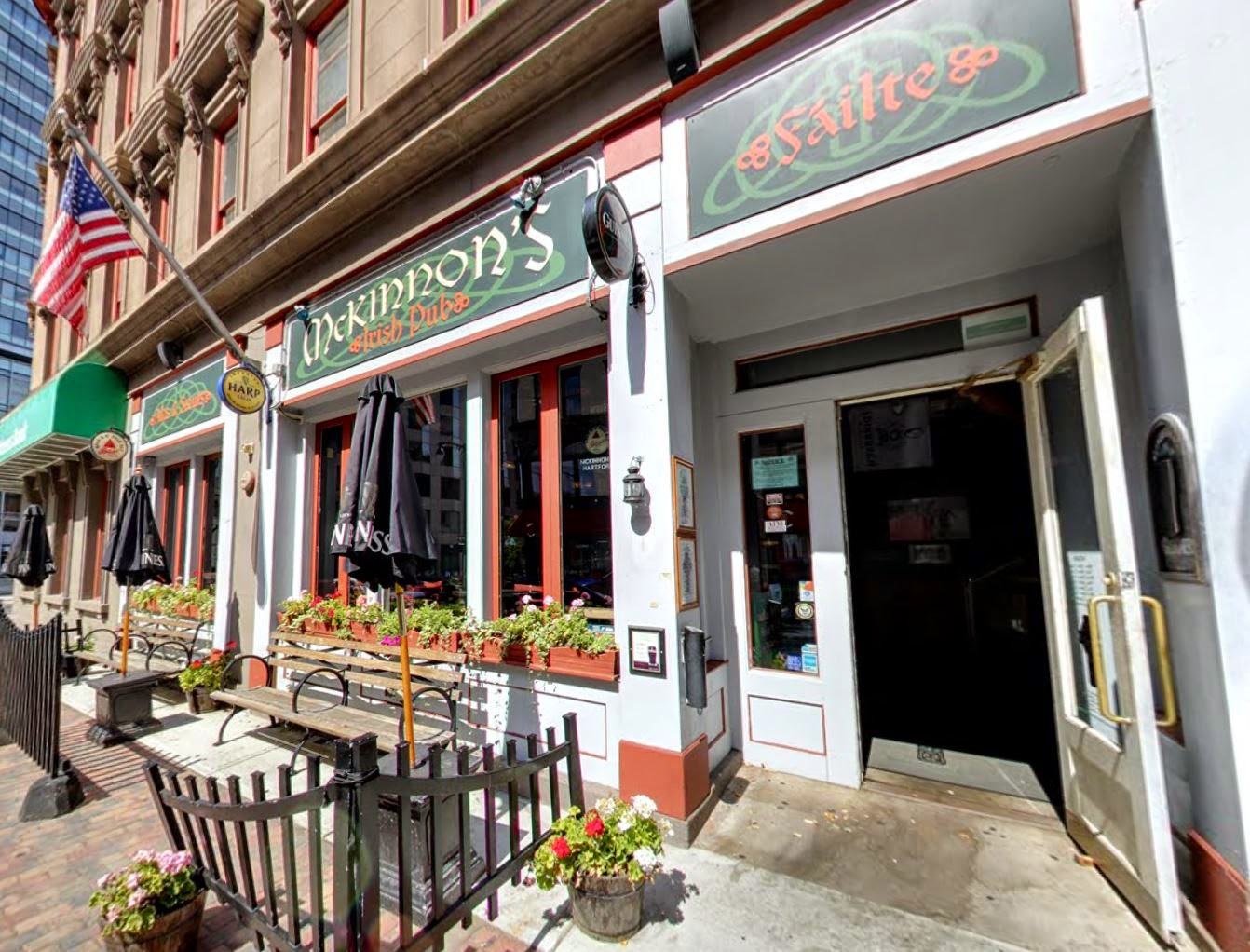 |
| Google Street View |
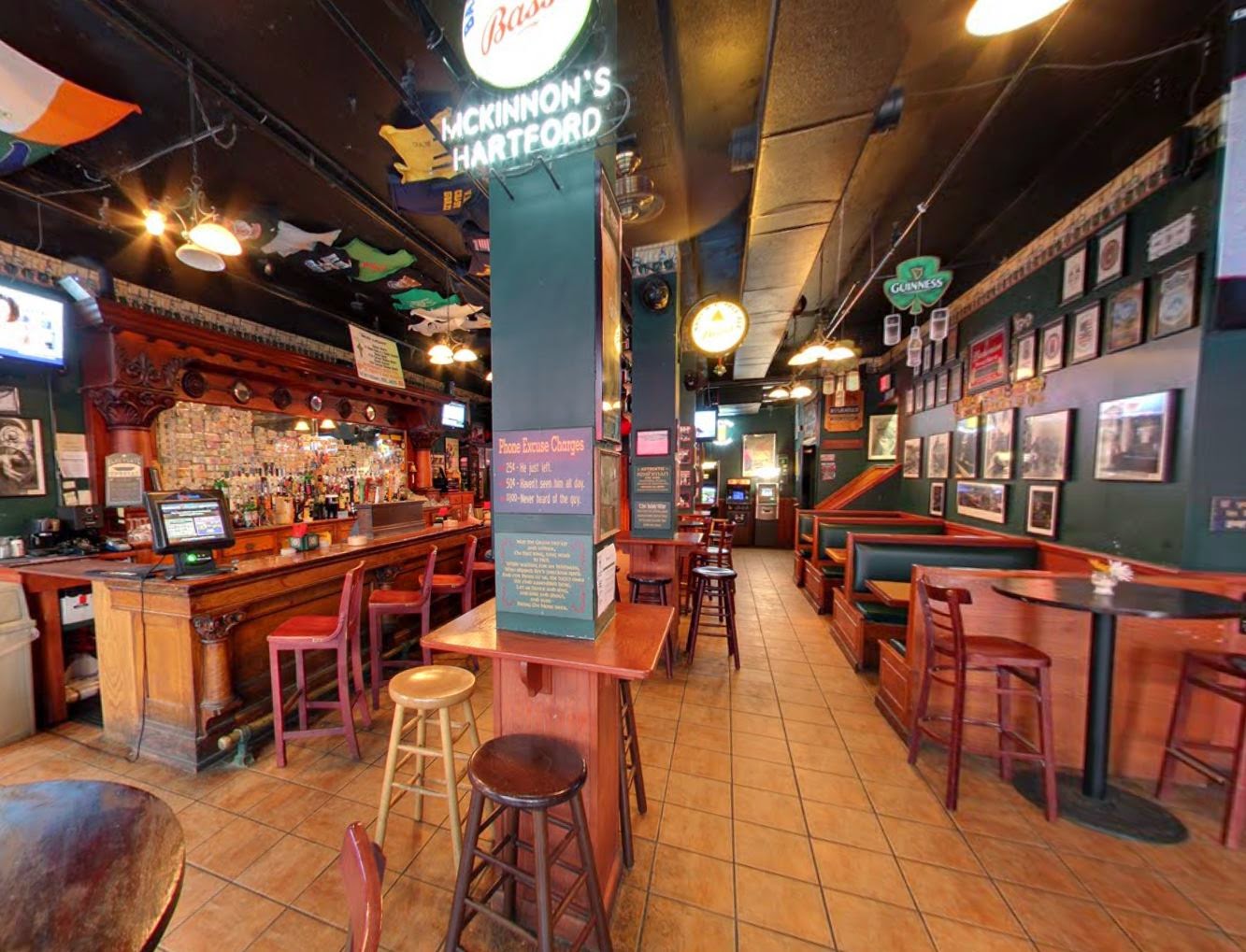 |
| Google view August 2010 |
McKinnon's Irish Pub on CT Perspective TV
11 March 2012
But I digress....Here's the rest:
(click to enlarge)
 |
| The Squash Player (named by me) Print is by Eleanor E. Manly (British, fl. 1875-1898) |
From (via Google Books):
~ ~ ~
 |
| Parlor concert guests are introduced below. |
 |
| trade card from Digital Commonwealth |
 |
| (Google Books) |
Materna had some definite opinions about her craft, as explained to an interviewer and published in the San Francisco Call on Friday, March 13, 1896:
"There is one mistake that many people who try to sing Wagner's music make. They think it is loud and strong, and that so they must always practice at full voice. That wears out their voices. I have always practiced mezza voce, for, if you can sing a thing with the half voice, to yourself, you can always sing it with the full voice when you are before the public."She also had fond memories of Wagner:
"When the singer was asked for some personal reminiscences of the master whose music she had parsed so much tears swelled up in her kind eyes and she answered quickly: "No, I cannot talk of him. When I sing his music my whole heart goes out into it, but when I think that so good a man, so great a composer is dead, then—excuse me," and Materna tried to smile away some big tears and hastily turned the conversation to her pleasure at being in the golden California sunshine."If you are interested in voice training, the site from which the above quotes were excerpted, Voice Talk by Daniel James Shigo is highly recommended.
Rubenstein: Arthur Rubinstein, pianist, was a child prodigy born in 1887. Over his decades-long public career, he was famous not just for his generally superb talent, but also for his expert interpretation of the works of Chopin. From Wikipedia, here's a photo showing him in his youth, perhaps a few years after the trade card artist depicted him above:
Patti: Adelina Patti was a famous soprano. A trade card featuring Adelina Patti is on page 153 of the Earl J. Arnold Advertising Card Collection. YouTube has a six-part documentary on Patti's life.
Nilsson: Christina Nilsson was a Swedish operatic soprano, a contemporary and rival of Adelina Patti.
Liszt: Franz Liszt performed by Arthur Rubinstein. Here we go. Nice how we can weave these things together, isn't it!
Artur Rubinstein plays Liebestraum nº3 by FranzLiszt
from YouTube
Mozart: Wolfgang Amadeus Mozart was also performed by Rubinstein, ours via YouTube:
Piano Concerto No 23 in A major, K 488
Arthur Rubinstein, piano
English Chamber Orchestra
Sir Colin Davis, conductor
Live recording. London, July 1962
Wagner: Courtesy of YouTube, here's Richard Wagner conducting Amalie Materna in 1880*:
Richard Wagner's Tristan and Isolde, Opera, WWV 90, 1865 - Love Duet (fragments) conducted by Richard Wagner (1813-1883) with Amalie Materna, soprano, Albert Niemann, tenor, Marianne Brandt, mezzo-soprano. Bayreuth Festival Orchestra, Bayreuth, 1880.
00:00 Act II. Love Duet (fragments), original
04:05 Act II. Love Duet (fragments), restored
Recording: c. 1880, Cylinder.
Wagner Conducts Wagner: Tristan Und Isolde, Grammofono.
* The date of this recording may have been 1882. There seems to be some dispute about this.
For further details, see comments on the original YouTube post.
00:00 Act II. Love Duet (fragments), original
04:05 Act II. Love Duet (fragments), restored
Recording: c. 1880, Cylinder.
Wagner Conducts Wagner: Tristan Und Isolde, Grammofono.
* The date of this recording may have been 1882. There seems to be some dispute about this.
For further details, see comments on the original YouTube post.
<PREVIOUS PAGE ~ index ~ NEXT PAGE>
The author of this blog has attempted to correctly apply terms and conditions to Content. These pages and associated images are being made available exclusively for use in non-commercial and non-profit study, scholarship, research, or teaching . Researchers are responsible for using these materials in accordance with Title 17 of the United States Code and any other applicable statutes. All trademarks, service marks, trade names, trade dress, product names and logos appearing on this blog are the property of their respective owners.. In the event that any Content infringes your rights or Content is not properly identified or acknowledged please email me. Thanks!
This site includes historical materials that may contain negative stereotypes or language reflecting the culture or language of a particular period or place. These items are presented as part of the historical record, and do not represent or in any way reflect the personal views of the author of this blog, his ancestors, or his family.

You'll "catch my ear"
--if you comment here--





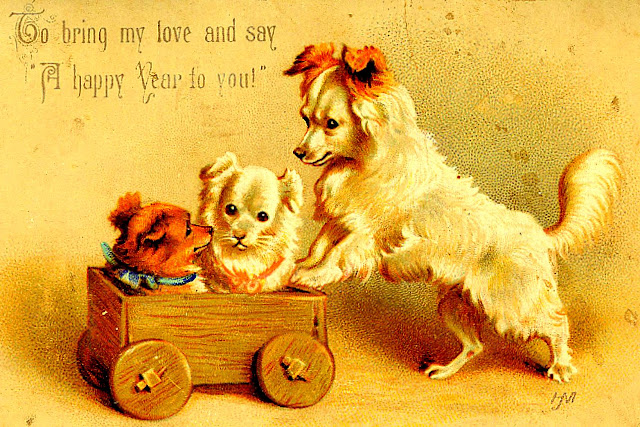
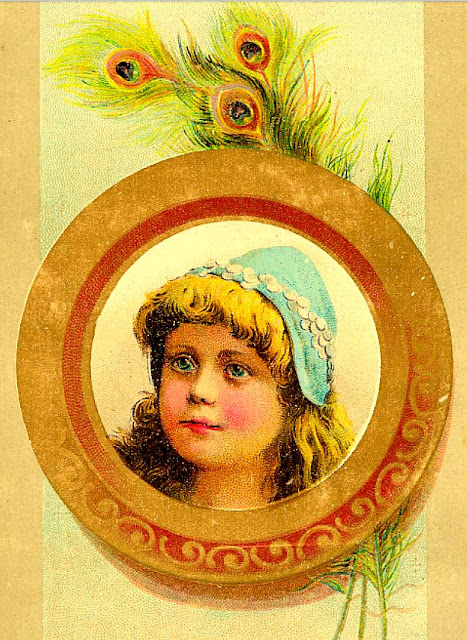

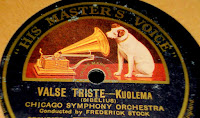




Comments